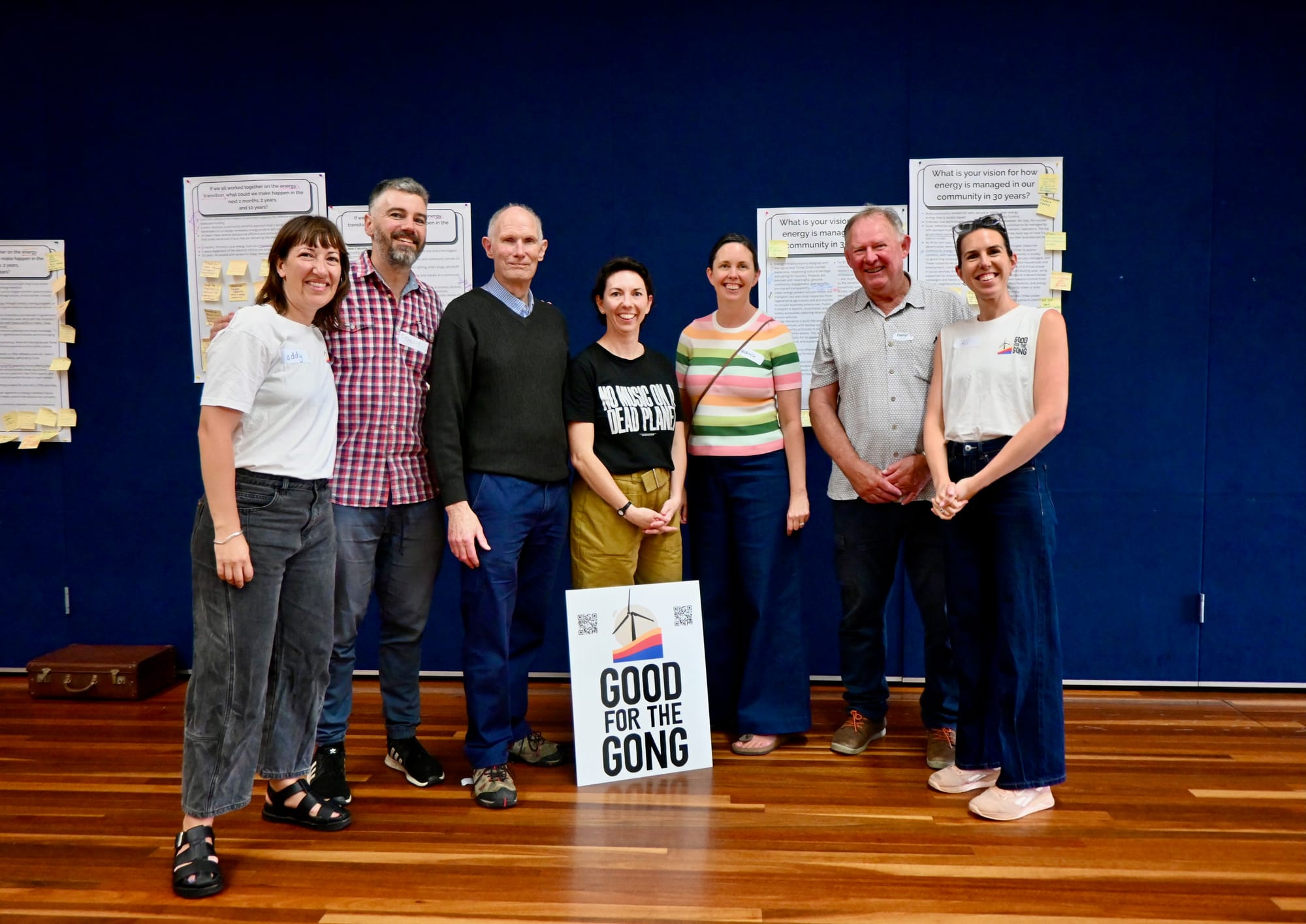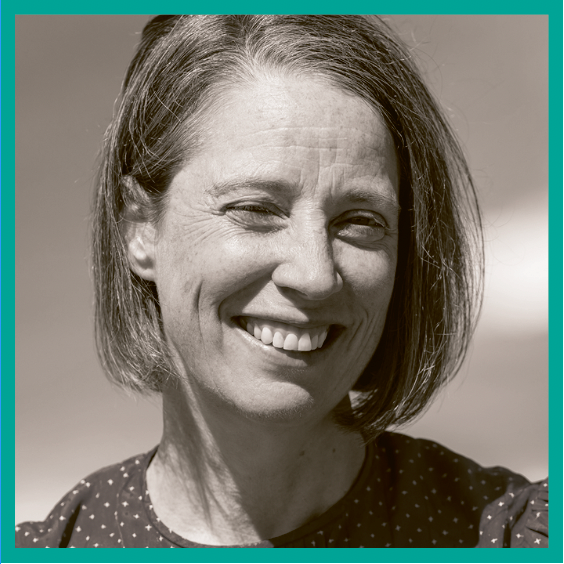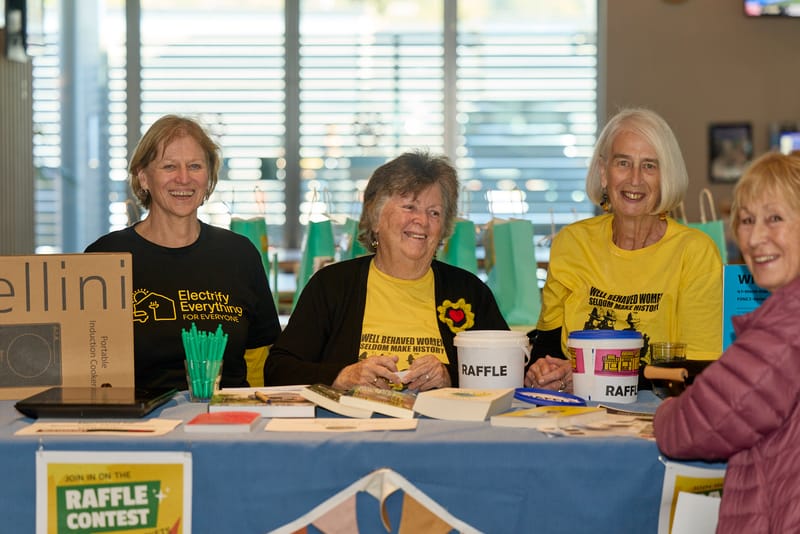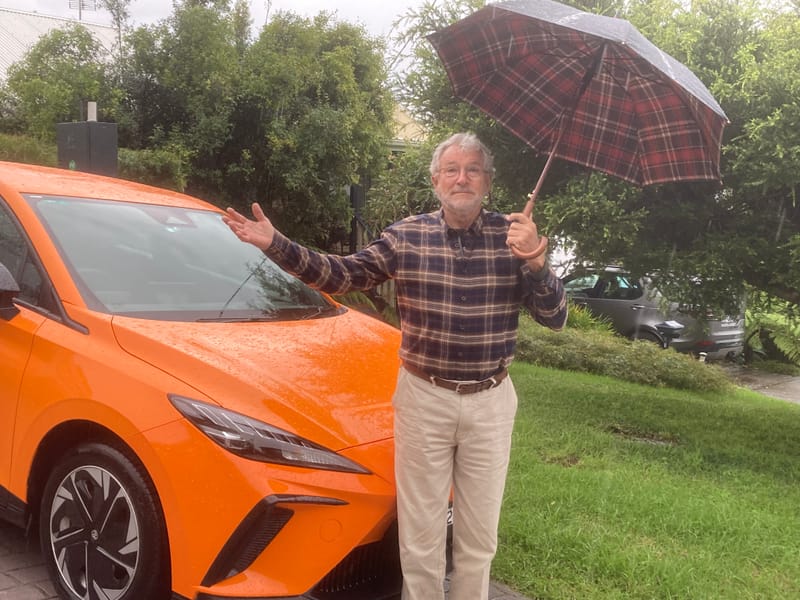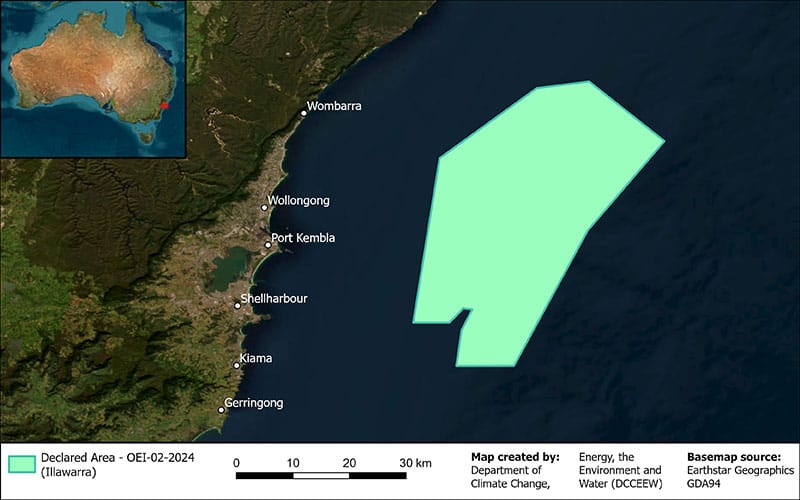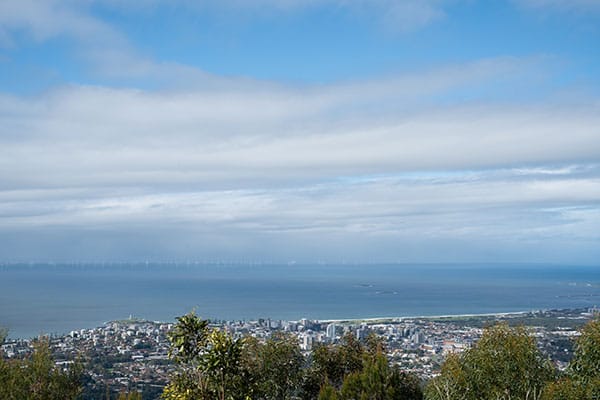Good for the Gong workshop attracts a 'hopeful' crowd
What do offshore wind advocates do when offshore wind is (perhaps temporarily) off the table?
What do offshore wind advocates do when offshore wind is (perhaps temporarily) off the table?
Broaden their horizons to all kinds of clean energy and run a “community vision” workshop was the answer for local group Good for the Gong, which drew about 70 people to its Sunday afternoon workshop at Dapto Ribbonwood Centre on October 26.
“I'm here because I really wanted to hear those community-based conversations around the transition to renewable energy,” the Federal Member for Whitlam, Carol Berry, told the Illawarra Flame.
“There's great turnout here today – a lot of positivity in the room. There's a real desire to engage in further conversations about how we make this transition work for everyone, and I think that's very exciting.”
With Gretel Van Lane, host of Dinners with a Difference, as the MC, the event aimed to uncover what people want from the energy transition. Small group discussions were mixed with expert presentations by the likes of Darryl Best, a retired coal miner passionate about a just transition to renewables, and Francis Vierboom, CEO of Rewiring Australia, which is leading the Electrify 2515 Community Pilot.
Bel Lopez, a local audio documentary maker, said the idea of meeting people and talking about possibilities was appealing.
“It felt like consultation was built in from the ground up,” she said. “The idea of an Illawarra gathering that isn't afraid of difficult conversations about what is actually ‘Good for the Gong’ is so exciting. It makes me feel like our community is preparing itself to be some kind of pilot model, or a proof of concept for what we can really do to make an energy transition happen.”
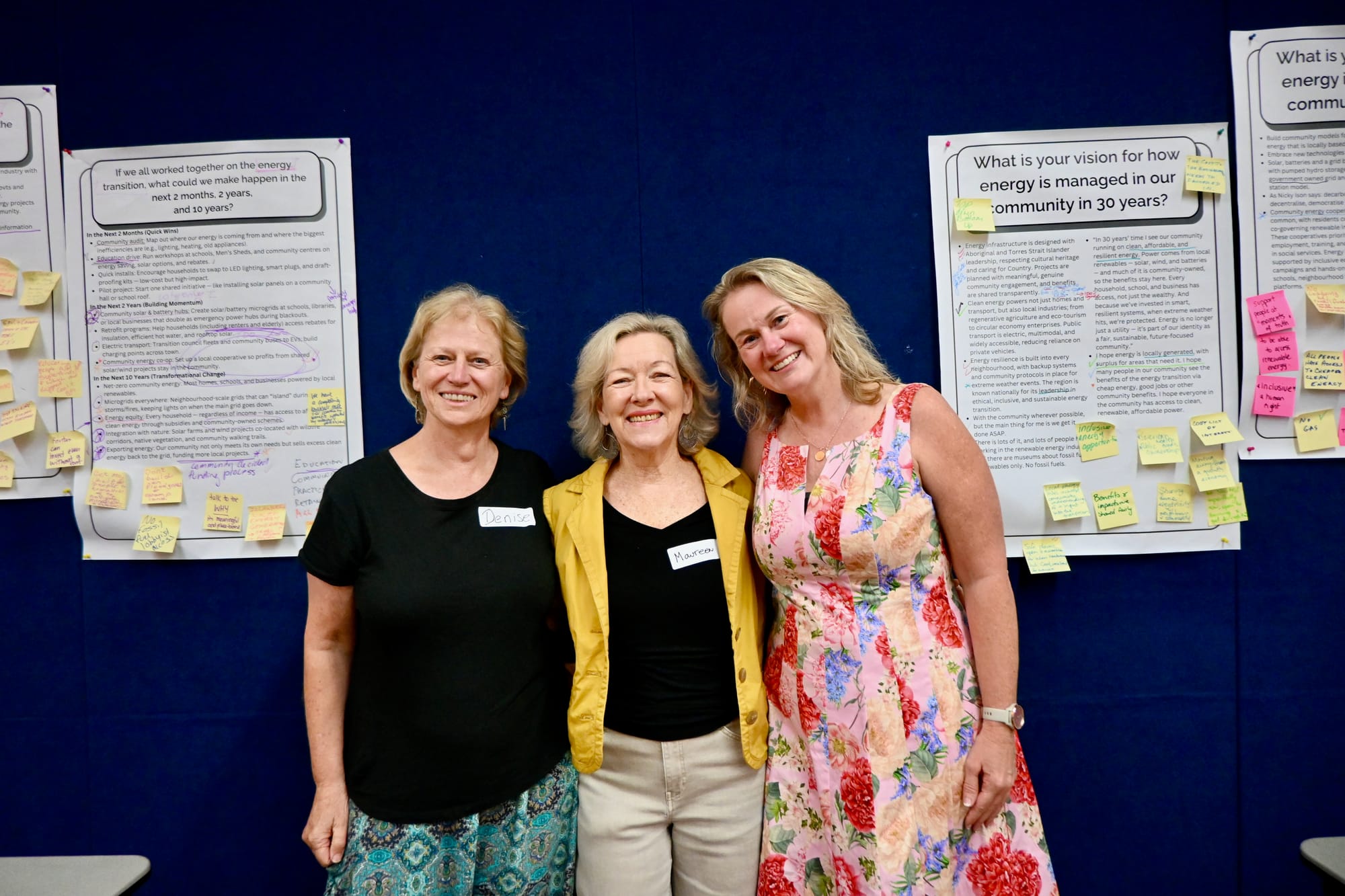
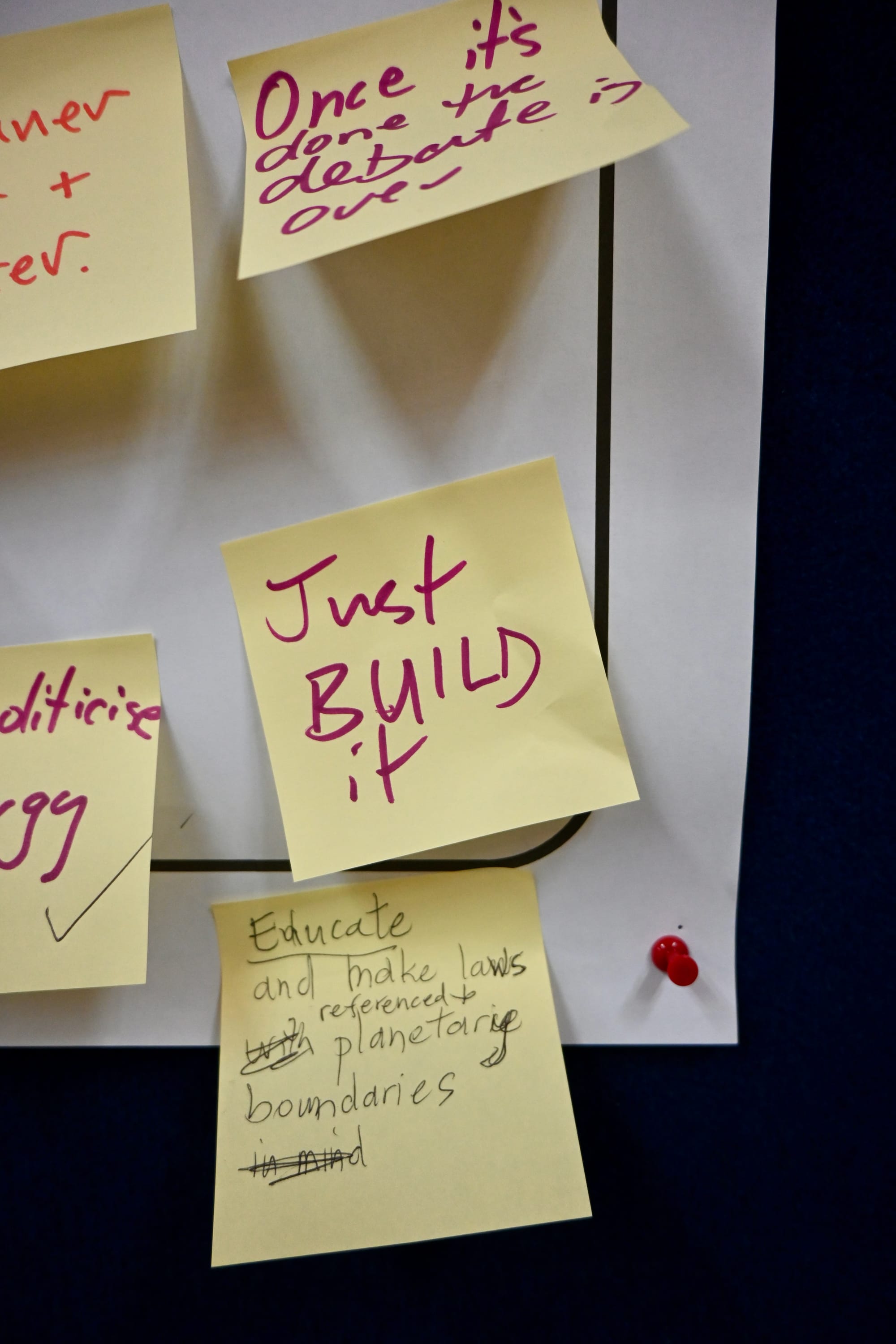
L to R: Denise Aubourg, Maureen and Jo Lunn
'Just build it'
One Post-it created in a group discussion read “Just build it”, summing up a general desire for progress and, on this, Keiraville psychologist Jo Lunn had a suggestion.
“One of the things that we can do immediately as a community is really look to educate people around their banks and super funds and which ones are actually funding coal and gas projects,” Jo said.
Friends of the Earth, for example, runs a scheme called Money Movers that encourages people to fight climate change with their personal finances, with a green guide to finding ethical banks, pensions and insurers.
“The reality is once people find out and start lobbying their banks or changing those processes, you actually see a change from the financial sector,” Jo said. “That side-steps all of those issues around trying to get government change and change in legislation, when organisations are chasing profits and people are moving their money because they can.
"If we collectively did that, it means it doesn't matter if coal mines are approved or not, if they don't have the funds to build it.”
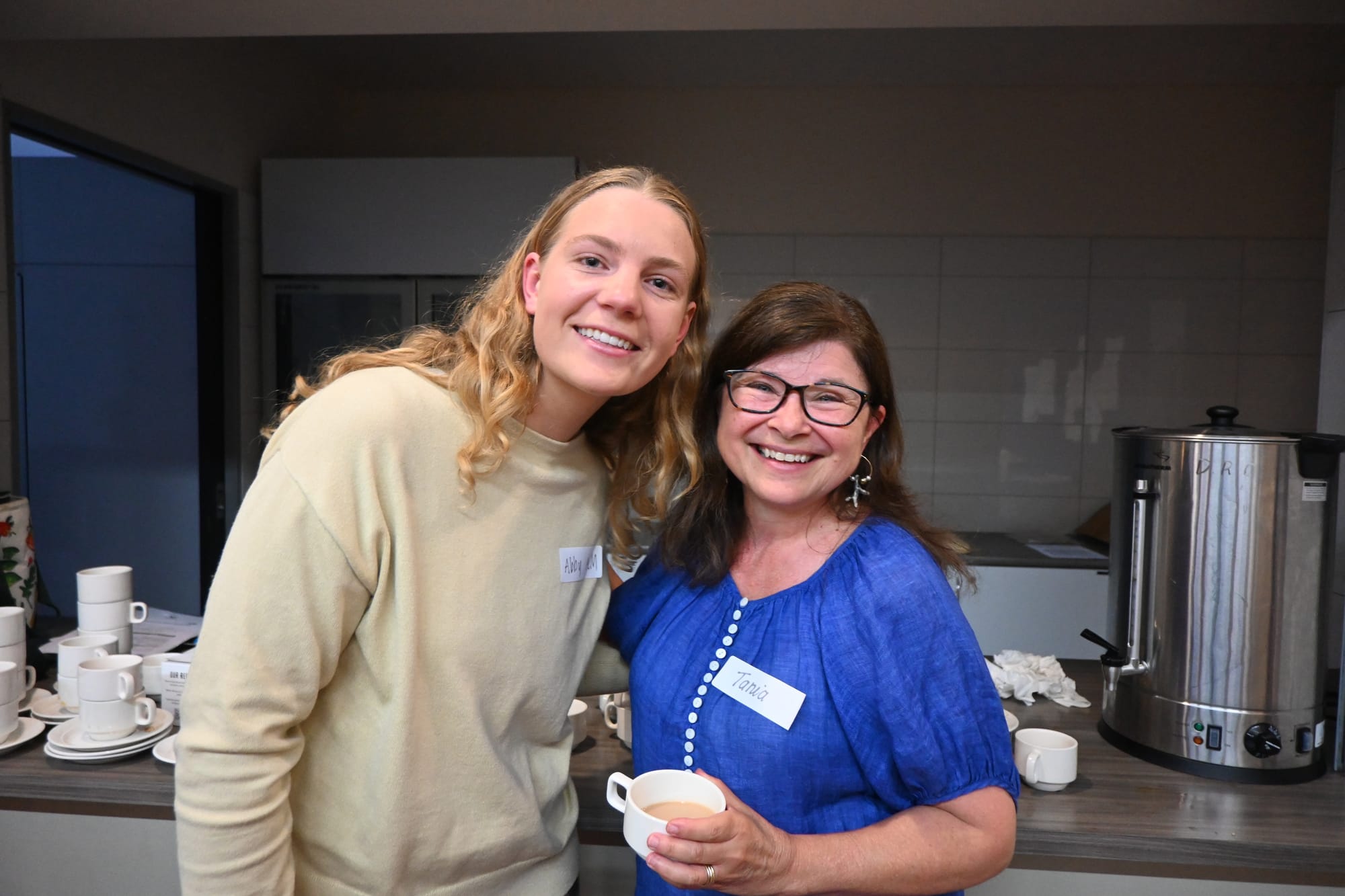
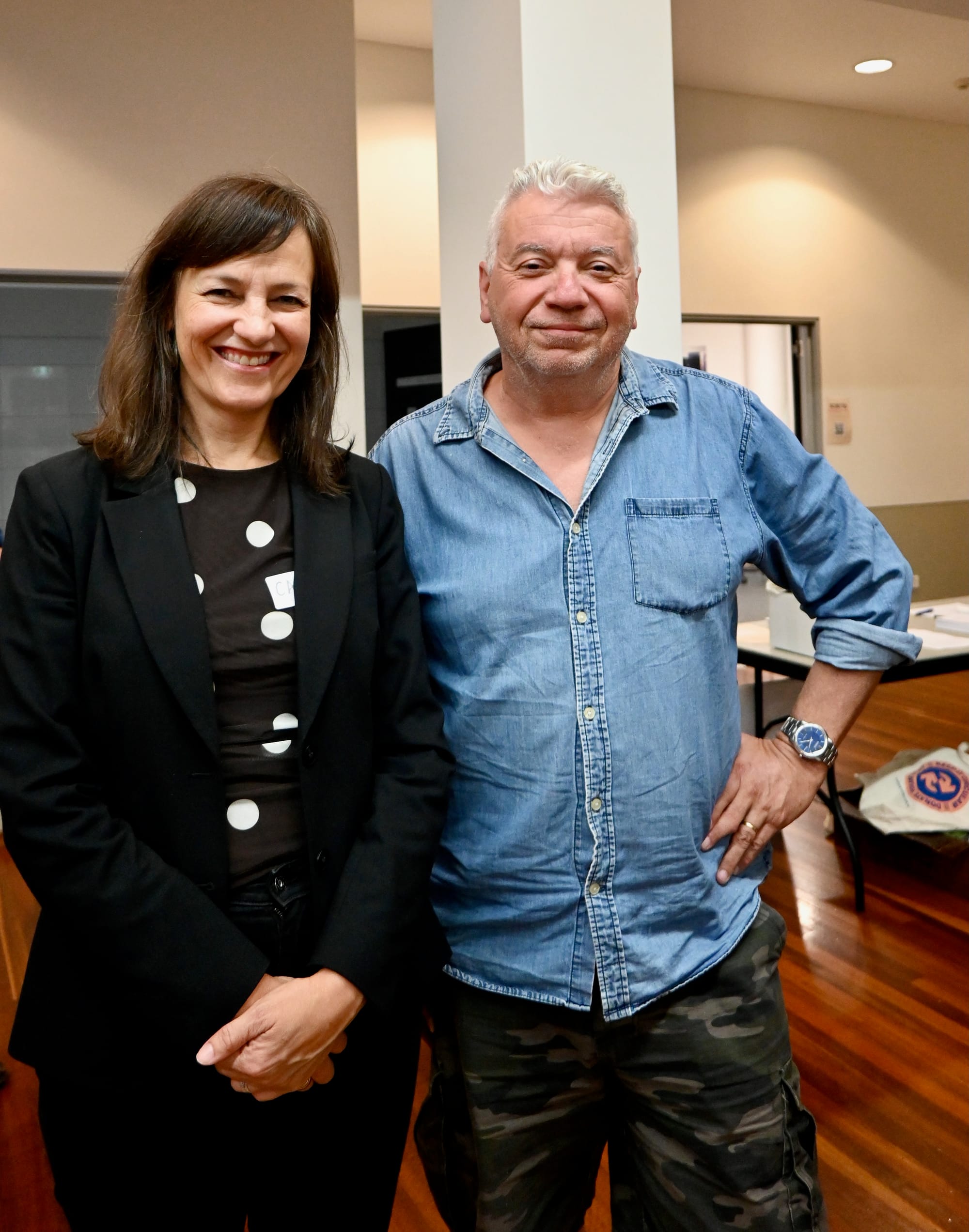
L to R: Renewable energy engineering student Abby McMaster and Green Gravity's Tania Jones; Whitlam MP Carol Berry and South Coast Labor Council secretary Arthur Rorris
Time to 'pause and reflect'
University of Technology Sydney student Abigail McMaster, who is studying a “fun degree” in renewable energy engineering, said she was drawn to the event to find out what residents think about renewables. “There's so much innovation at the moment, like solar, wind, offshore, batteries, all of this,” Abigail said.
Tania Jones, of award-winning business Green Gravity – which recently announced a deal with Wollongong Resources for gravity storage trials at Russell Vale mine – said the workshop was a chance to “pause and reflect”. We need to recognise there isn’t a singular solution to the energy transition, Tania added. “It isn't a singular voice. It isn't a singular issue, that it actually takes community, takes time, and what sits behind it is often trust and relationships at that very grassroots, personal level. And that's what I'm seeing today."
Secretary of the South Coast Labor Council, Arthur Rorris told the Flame, “I think community-based solutions have to be inclusive, and from the Labor Council's perspective, we've been active in this space for a very long time, and I guess our key objective is to make sure that changes in the energy space are jobs positive, not jobs negative, and I think that's critical to their success.”
Coledale local Denise Aubourg was glad to see so many different people coming together. “I'm part of Electrify Illawarra, and so I'm passionate about sharing with people how they can benefit personally from electrifying real houses,” Denise said. “So from going from gas and petrol and diesel to all-electric appliances and vehicles, how they can personally benefit – and how the community benefits.”
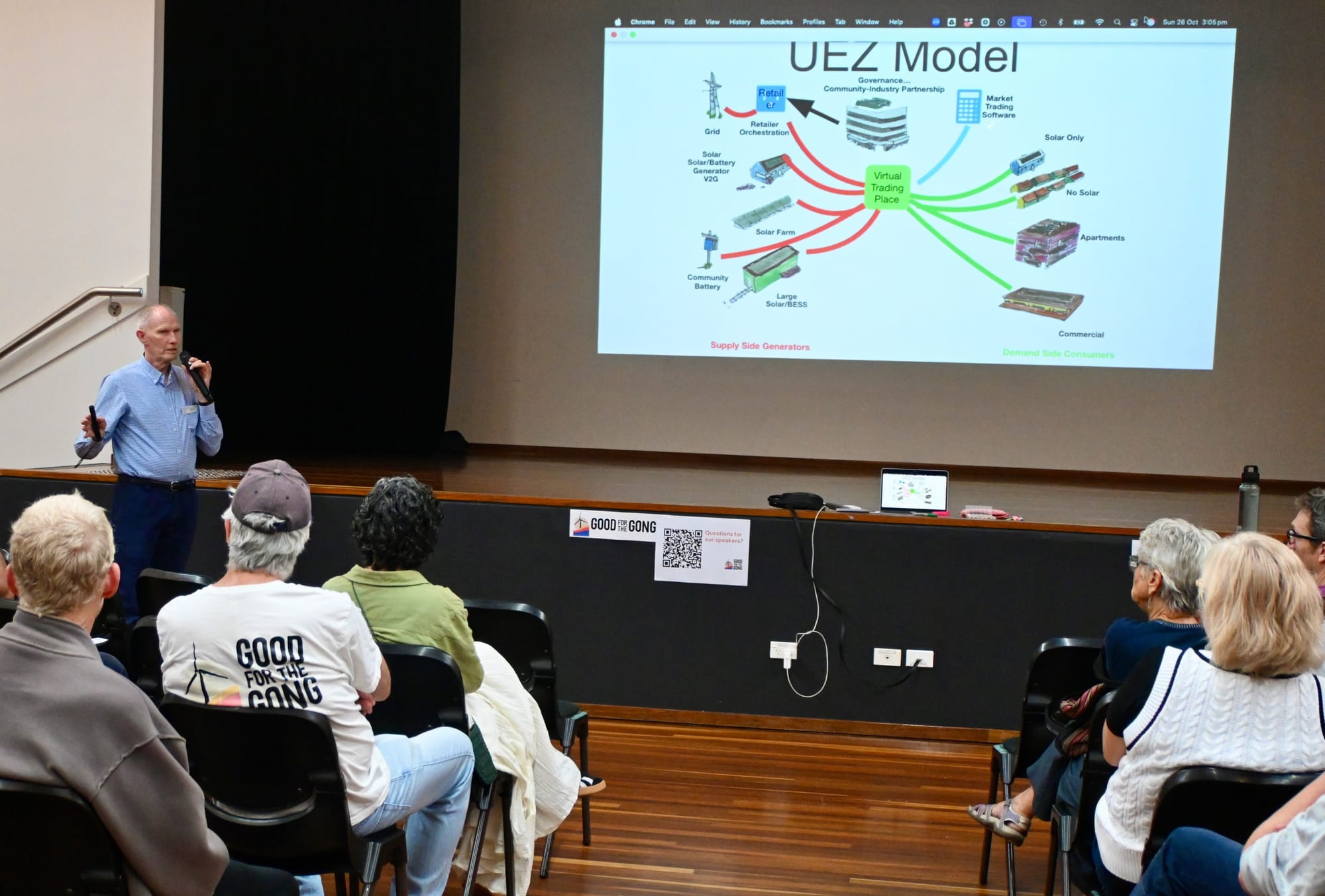
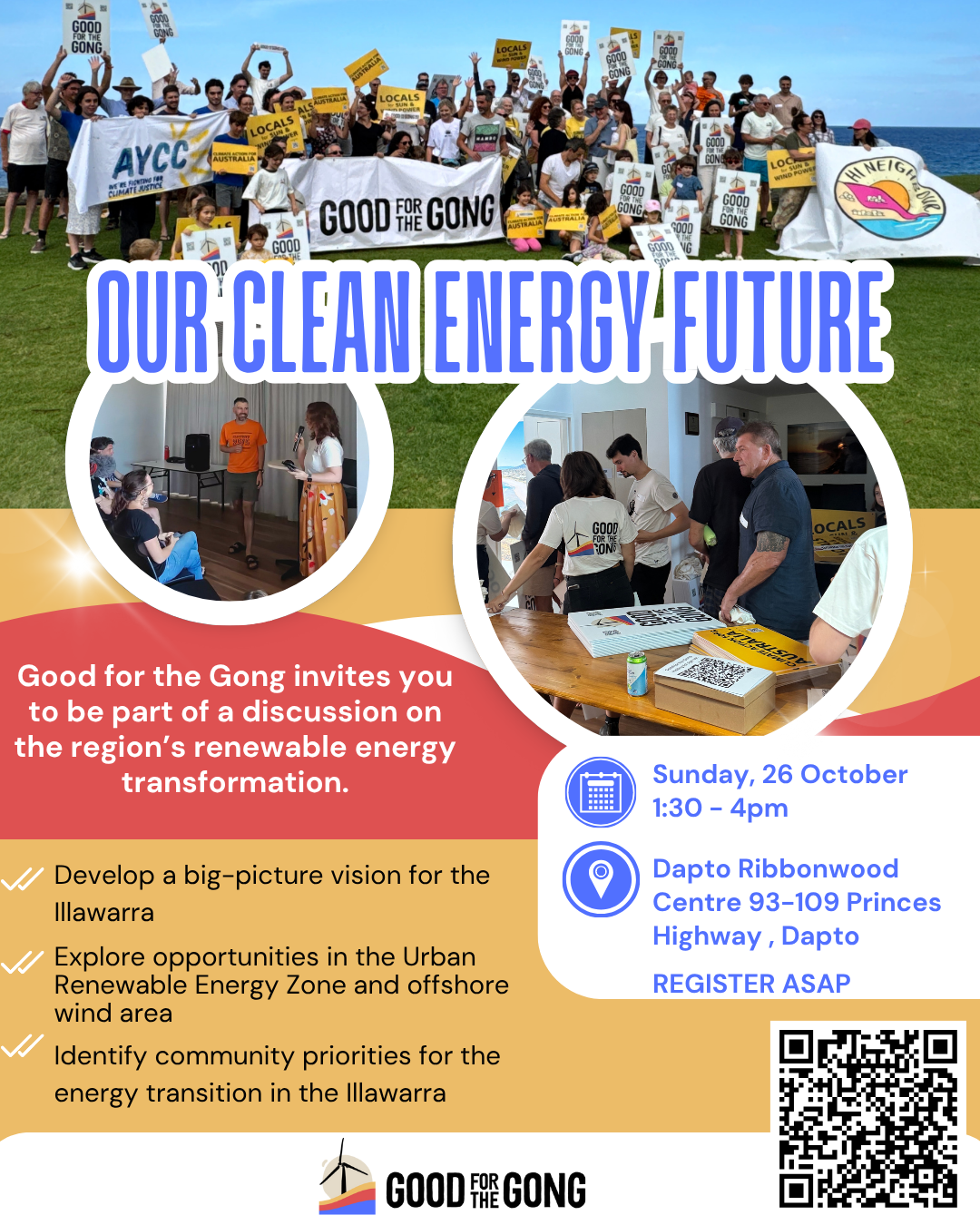
Renew's Greg Knight explained how Urban Energy Zones work
Room channels hope
The mood in the room was “hopeful”, said one of the key speakers, UOW’s Associate Professor Michelle Voyer, a principal research fellow at the Australian National Centre for Ocean Resources and Security (ANCORS).
“What we do know from international events, social science done all around the world, the transition done right involves community and community leadership,” Michelle said. “So community setting the vision for where they want to go and having a say on what technologies you use, what benefits look like, what the processes should be. That's how transition is done well.
“It's going to be an ongoing conversation.”
Another expert speaker, Greg Knight, convenor of the Illawarra branch of Renew and an advocate of Urban Energy Zones, led a group discussion in brainstorming next steps. Participants thought more information was needed, Greg said. “We’re getting ‘education’, so we need more people to understand what's going on; ‘community’, getting everyone involved in the solutions; ‘practical action’ – actually do something, less talk – and ‘retain the profits’ from the activity. That seems to be the big messages.”
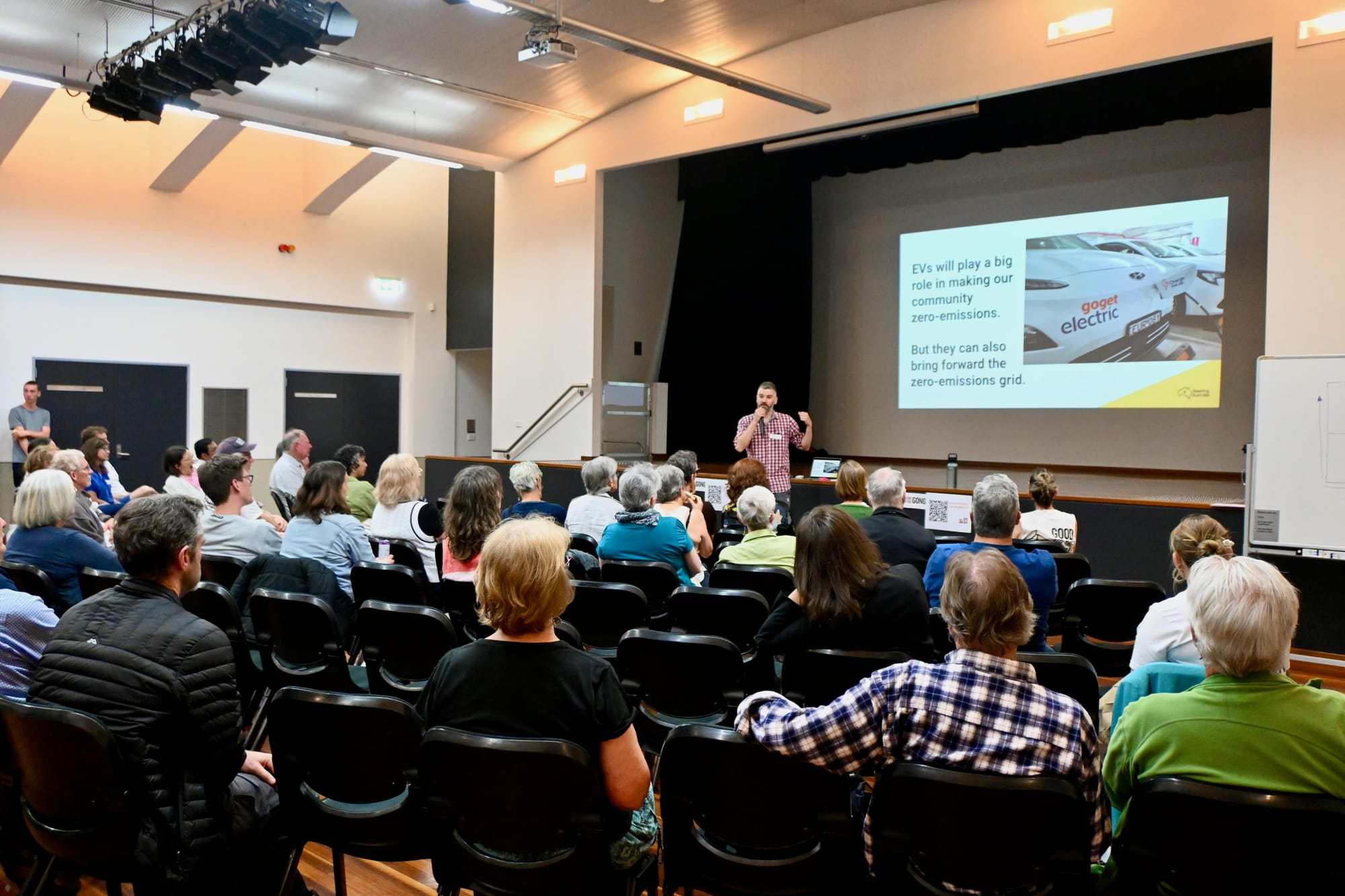
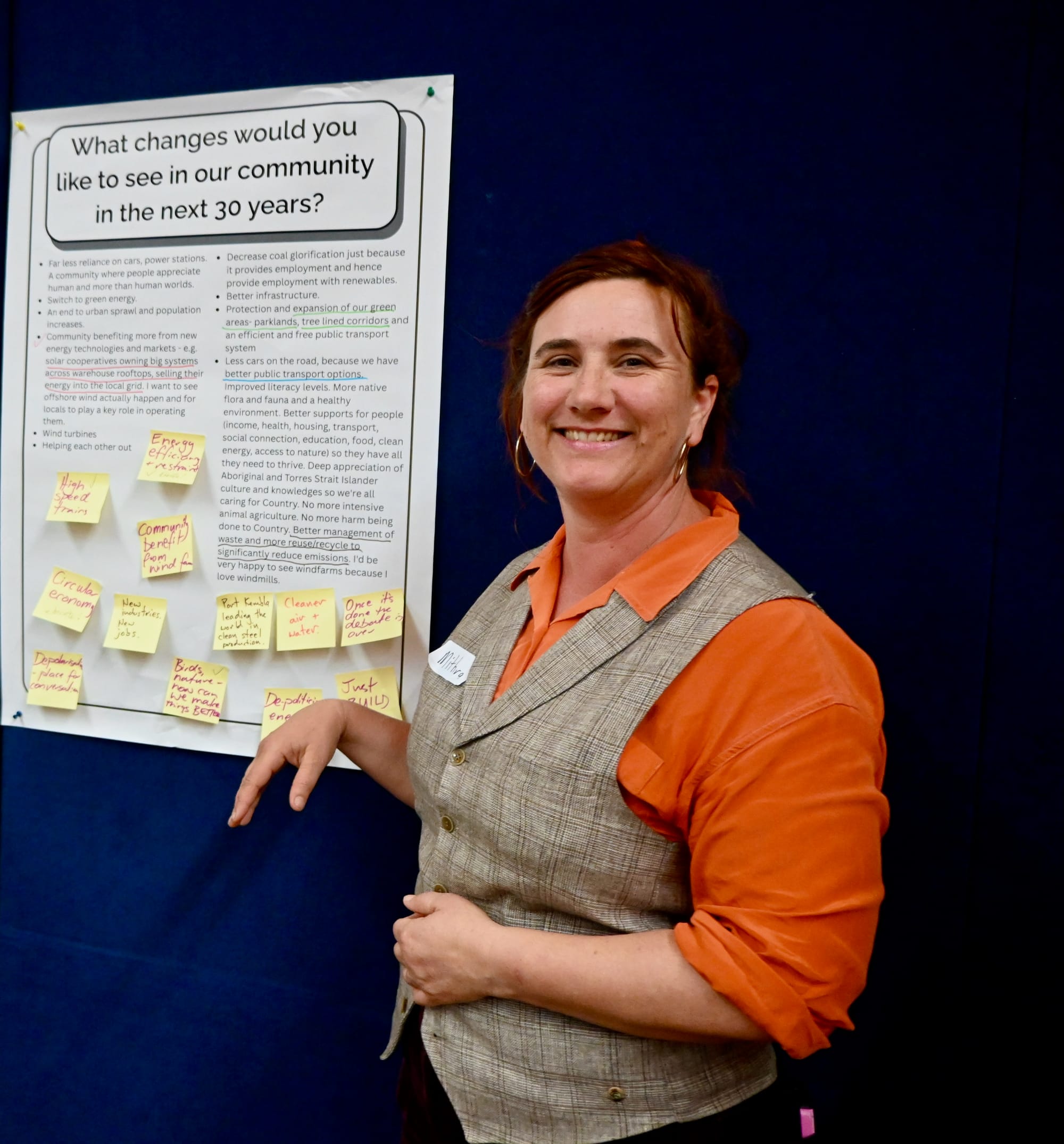
Francis Vierboom presented; Mithra Cox led small group conversations
Picture a better world
Speaking as a community member, Mithra Cox, the former Wollongong Greens councillor who retired from her political role in 2024, said her group wanted to see a better world. “So not just that we do the thing that's necessary, but then maybe by doing it, we actually improve nature, and we have more biodiversity, more birds, cleaner air,” Mithra said.
Her group also discussed solutions: “So urban greening, public transport, the type of energy people would like to see. But there was also a discussion on – we really need political leadership to make it possible, because, as a community, we can have conversations, and we can work to depolarise things in our community, but we really need the people with the power to do the thing, to do the thing.”
The closest anyone came to controversy was an exchange about whether offshore wind was ‘dead in the water’ or ‘on life support’ – as the Illawarra Flame has reported, experts say a wind farm off our coast remains in limbo, pending movement in global capital after the policies of the Trump administration drove investors back to coal, oil and gas.
Good for the Gong’s Madeleine Holme delivered the day’s final speech, explaining how Democracy Co ran a community assembly of residents, councils and developers in Gippsland – home to Australia’s first and most advanced offshore wind zone, where the government says projects will create thousands of jobs over the next decade.
“In terms of the community assembly, I think it could be a fantastic model for the Illawarra because it empowers the community to make decisions on how they want to be engaged and to set the groundwork on what's important,” Madeleine said.
Read more: Energy & Sustainability
Powering the Future: Dr James Hazelton on Electrify 2515

